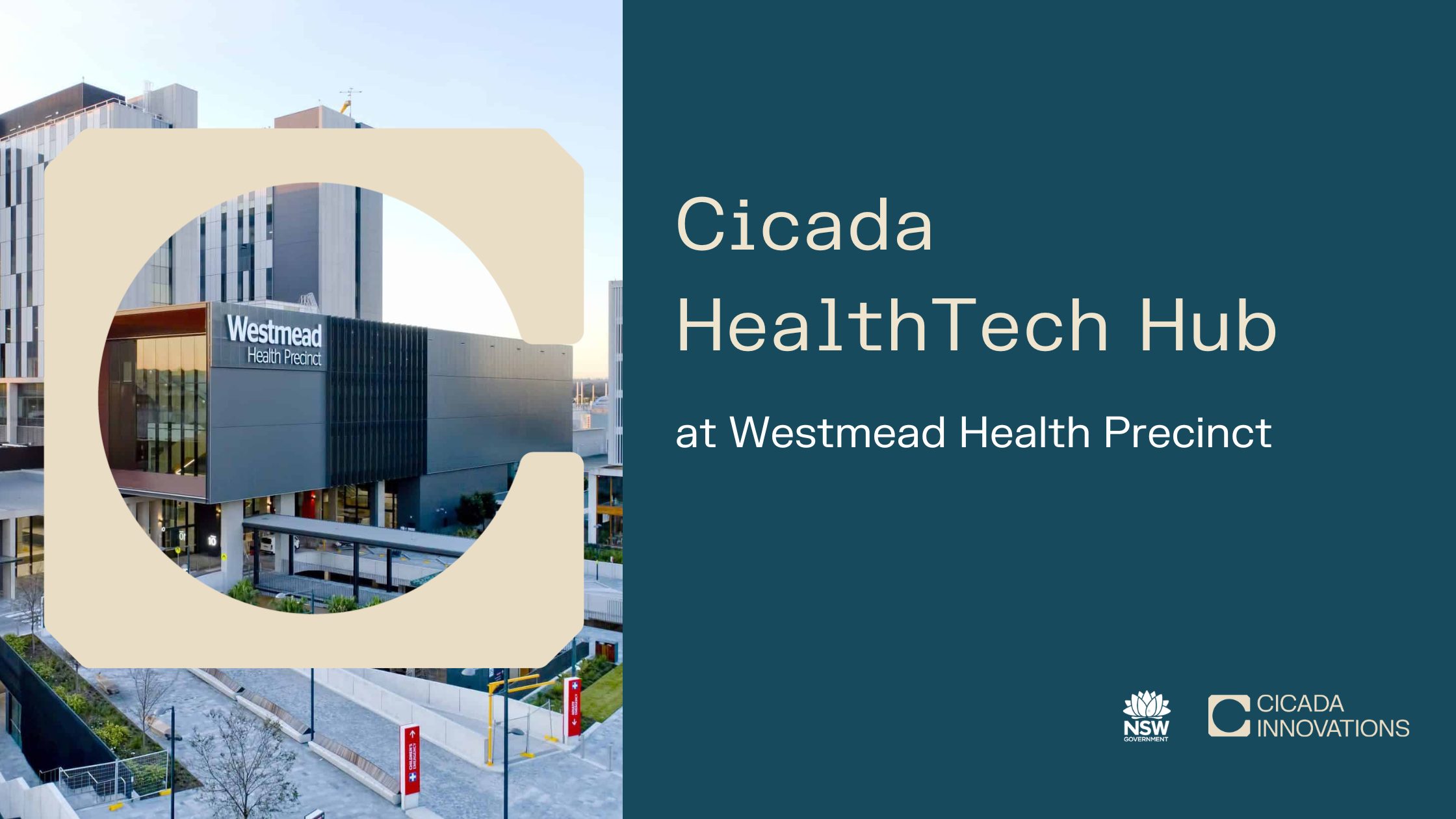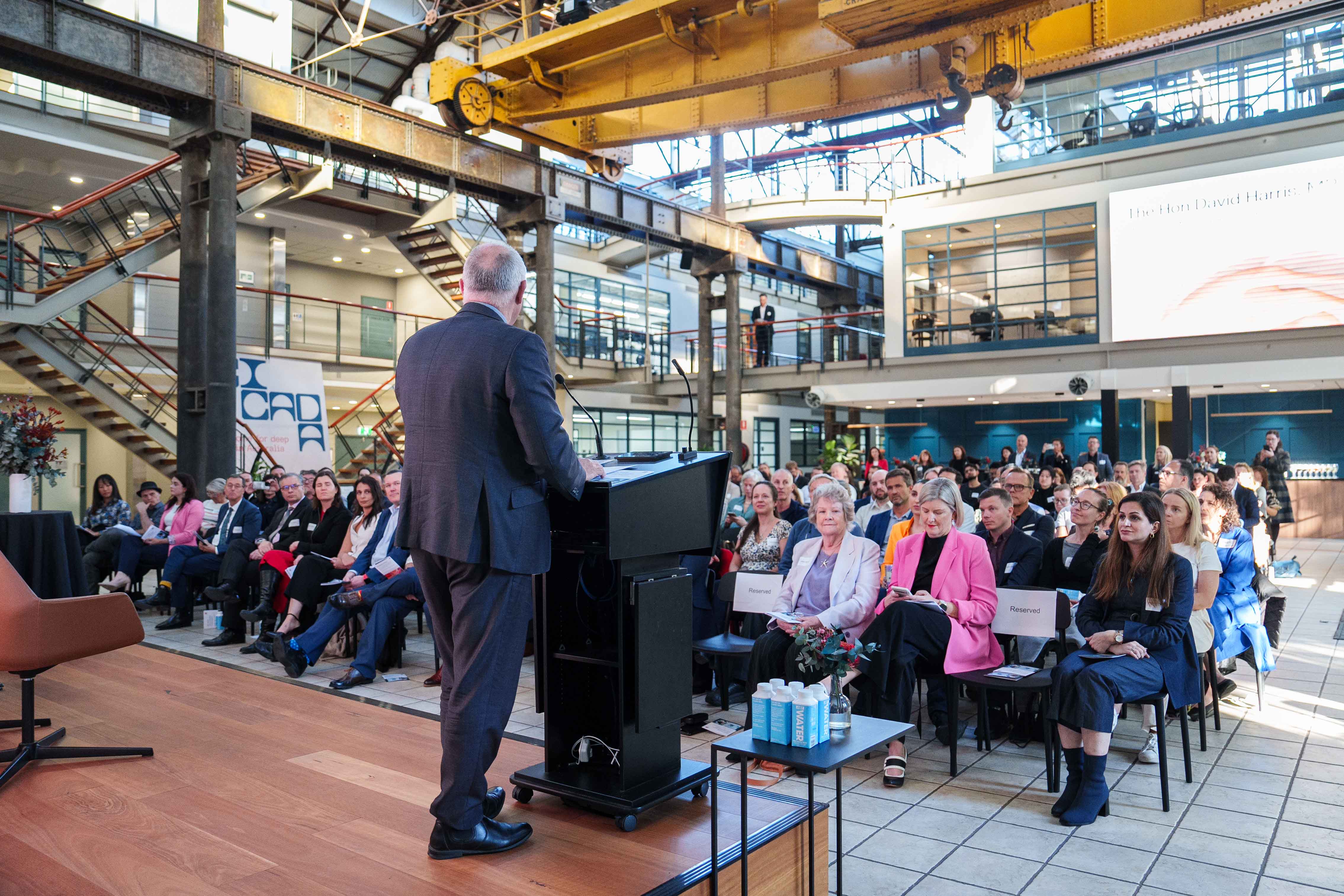Cicada Spotlight: Roberto Solari, Venture Partner Brandon Capital, UK
.png)
Tell us about your work with Brandon Capital - what do you love about your job?
I’ve worked with Brandon Capital for over 12 years now. I knew Stephen Thompson in London, and when Stephen set up Brandon Capital with Chris Nave in Australia, they asked if I would act as an advisor to Brandon and I’ve been involved ever since. I’m not involved in the investment decisions; just advising scientists and providing insights in my area of expertise such as respiratory therapeutics. I’m particularly involved with those groups developing small molecules or biologics. I provide scientific advice to a number of Brandon funded companies. A big part of my work with Brandon is at outreach events like today. With my age and experience I try to pass something on to the next generation.
What I love most about the job is getting feedback from researchers doing chemistry or drug discovery programs that the advice they received has helped them. Generally, people are kind, and it feels good to know I’ve been able to help them in their journey. I got a good feeling from the crowd at the fireside chat earlier today. The audience asked some good questions and seemed interested in the answers. Communicating that “can do” mentality is key as drug discovery costs so much and takes so long. It can seem like an unmovable object, but it is possible. It is big, difficult, and scary but people do make transformational contributions.
You currently are on a bit of a tour - what are your goals for this trip?
This is the end of my Australian tour which has included stops in Perth, Melbourne, Brisbane, and Sydney. I haven’t made it to Adelaide yet but had some zoom meetings. I gave a presentation in Brisbane at an event supported by the QLD government on target discovery and validation 101 covering what to think of before starting a screening cascade or a drug discovery program at the Translational Research Institute (TRI). I also presented seminars at the Garvan Institute on MyricxBio, an Antibody-Drug Conjugate (ADC) company I co-founded and its history in virology and oncology. I presented a similar talk in Perth on the anatomy of a spin-out - how, why, what were the challenges, lessons learned etc at the Harry Perkins Institute of Medical Research in Perth. Brandon Capital asked me to do it because of my diverse career, passion for giving back to the young at crossroads in their career. I’m not embarrassed to talk about my career and my mistakes and successes. I’ve been helped by great mentors in my career and it’s great to pay that back when you have opportunities.
What are your thoughts about Research Precincts such as the Westmead Health Precinct? What do you think they do well, and how can they maximise their efficiency?
Research Translation is definitely high on the agenda in Australia. In the UK, there is high pressure to ensure the Pounds invested in research are being translated into scientific and societal benefit, and I think this is an emphasis that is now found the world over. In my role on the Translational Advisory Board for Francis Crick Institute, translation was baked into the DNA of each project. A major benefit of the Health Precinct is the ability to involve clinician scientists in projects. They can be engaged and consulted in projects to understand the clinical needs, and there is a teaching hospital just down the road which also allows for closer engagement with patients. You’re lucky here in Australia to have so much available space for the kinds of major infrastructure projects I see going on around us here at Westmead; the UK is a crowded island in comparison and big infrastructure projects such as putting teaching hospitals in the same precincts as existing research institutes is much more difficult there. On a counter note, though there is a danger of being over obsessed with translation. It is important to do excellent science of all types and blue-sky research is also important.
What are some current research areas that excite you?
Antibody-Drug-Conjugates (ADCs) are exciting right now. In Respiratory, which is my area, the work that has been done in recent years on the anti-cytokine antibodies IL-4, IL-5, IL-13, TSLP, for asthma has been phenomenal to watch. It wasn’t long ago that the prevailing wisdom was that patients would never want to be treated with an injectable for asthma. But the change is happening, coming from decades of immunology. I like that the careful detailed study of immunology, the physiology, pathology, identifying the mediators, have helped to defy the conventional wisdom that you’ll never get reimbursement for antibodies as asthma treatments.
Seeing therapies for Cystic Fibrosis (CF) is so exciting. Although the responsible gene was identified so long ago, a tremendous amount of work has gone into people trying to address the defective protein - from discovery to seeing patients lives being changed is a tremendous success story for biomedical research.
So many successes in Oncology as well - the data in the public domain and the extraordinary work of research consortia - sequencing and testing compounds and causes - all the data publicly available are tremendous resources.
Finally, it’s been a tremendous personal satisfaction to me to see that a company I was cofounder of (Astex Pharmaceuticals) has just had its third product approved through pharma partnerships.
Any advice for researchers/founders looking to pitch for funding in the current economic climate?
Have a realistic plan! And a comprehensive plan from soup to nuts. Think about how you plan to progress your program - include risks and benefits, why should patients care, and who’s going to pay for it? And perhaps most importantly, why will it be better? In medicine, “new” is not enough. A “better” treatment is what is often required and interesting. This is not what academics tend to focus on in the research world, as novelty is often the emphasis in research - for academics being first and new is the focus, but in medicine you must demonstrate your therapeutic candidate is better - and why it is better.
When you meet potential funders - be prepared! Try to make market estimates and revenue forecasts. Make sure you can convey what the expected reimbursement strategy will be - know the markets you wish to enter. On the subject of IP - do you have a lock out position against your competitors? How much of a barrier to competitors is your IP portfolio? Can they work around you? How many fences can you build around your position? The more you’re able to shore up your IP portfolio, the stronger the position you're in! So, having careful thought about the IP strategy is important.
The Cicada HealthTech Hub:
The Cicada HealthTech Hub is proudly supported by NSW Government and is part of the Westmead’s Health & Innovation District. The district includes 4 major hospitals, 4 world-leading medical research institutes, 2 university campuses and the largest research-intensive pathology service in NSW. By 2036, the number of full-time staff will increase to more than 50,000 and the number of students will expand to more than 10,000. Among the first projects for development is a viral vector advanced manufacturing facility to provide ground-breaking trial therapies for infections, cancer and genetic diseases.
Find out more about the hub here


